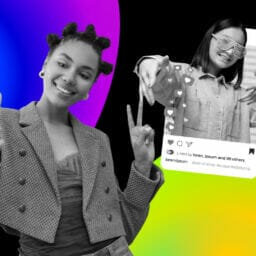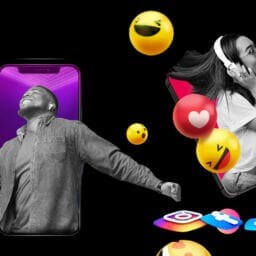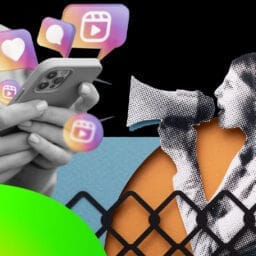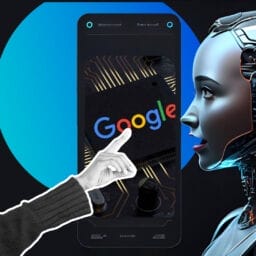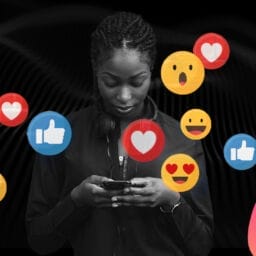The Emergence of AI Influencers: Exploring AI’s Impact in Virtual Influencer Marketing

Lil Miquela, a digital persona with 2.6 million Instagram followers, has captivated audiences and brands with her lifelike appearance and engaging content. This phenomenon highlights a significant influencer marketing shift driven by AI technology.
Virtual influencers are computer-generated personas designed to engage with social media users like human influencers. They have gained traction due to their consistency, control, and ability to scale marketing efforts efficiently.
For marketers, comprehending the rise of AI influencers is important to remain forward in the competitive landscape of digital marketing. These AI-generated personas offer unique opportunities and challenges that can redefine brand engagement and consumer interaction.
What are AI Influencers?
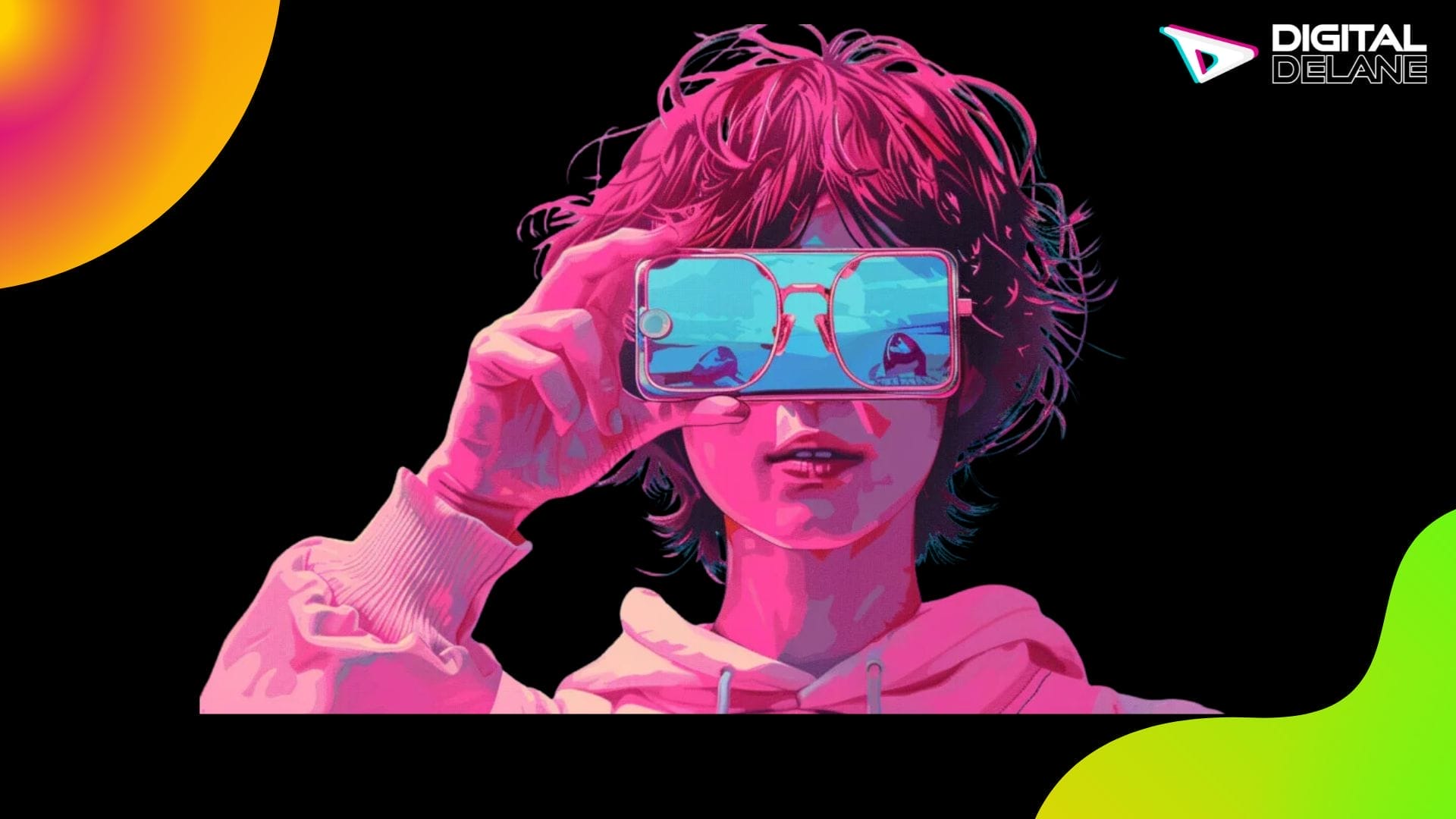

What exactly are AI influencers?
AI or virtual influencers are digital characters created using advanced AI algorithms. Like human influencers, they can interact with audiences on social media platforms, create content, and endorse products.
History: The evolution of virtual influencers from early models to sophisticated AI-generated personas.
The journey of virtual influencers began with simple, computer-generated avatars. Over time, advancements in AI technology have led to the creation of sophisticated digital personas like Lil Miquela and Magalu, who can engage audiences with a high degree of realism.
Key Players: Popular AI influencers like Lil Miquela, Magalu, and others.
Lil Miquela, Magalu, and Shudu are among today’s most recognized AI influencers. These virtual characters have amassed millions of followers on platforms like Instagram and TikTok, demonstrating their significant impact in the virtual world.
According to a survey conducted in the United States in March 2022, it was revealed that the majority of Americans follow AI Influencers on YouTube (28.7%). Followed by Instagram, is the second social media platform with the highest share of consumers following virtual influencers with (28.4%). TikTok is in third place with (20.5%) and Facebook in fourth position with (14.6%).
Do you want to grow faster? Schedule a free consultation call with an expert.
The Rise of Virtual Influencers


Trends: Why are virtual influencers becoming more popular?
Virtual influencers are gaining popularity due to their ability to provide consistent content, avoid scandals, and offer brands greater control over their personas. They can operate 24/7 without fatigue, making them a reliable choice for continuous engagement.
AI influencers like Lil Miquela have garnered millions of followers, with engagement rates often surpassing human influencers. For example, Lil Miquela has 2.6 million Instagram followers and consistently high engagement on her posts.
As of 2024, the Influencer marketing industry is worth $24 billion U.S. Dollars. In 2023, the market size was $21.1 billion, and in 2022, it was $16.4 billion. There has been a massive rise in the market size from 2022 to 2023.
Comparison: How do AI influencers stack up against human influencers?
While human influencers bring authenticity and relatability, AI influencers offer unparalleled consistency and scalability. Brands like Calvin Klein have successfully utilized both to create diverse and impactful marketing campaigns.
Tip: When choosing between AI and human influencers, consider the specific goals of your campaign. AI influencers are ideal for consistent, large-scale campaigns, while human influencers may be better for personalized and authentic engagement.
How AI Influencers Work
Creation: The process of creating virtual influencers using advanced AI algorithms.
Creating AI influencers involves using generative AI tools to design lifelike characters. These tools can simulate human features, expressions, and movements, making digital personas almost natural.
Content Generation: How AI tools generate content for these influencers.
AI influencers’ content is generated through sophisticated algorithms that analyze trends and audience preferences. This enables them to produce relevant and engaging posts, stories, and videos across various social media platforms.
Engagement Strategies: Ways AI influencers engage with their audience on platforms like Instagram and TikTok.
AI influencers use data-driven strategies to engage with their audience. They can respond to comments, participate in trends, and create interactive content, maintaining a dynamic presence on platforms like Instagram and TikTok.
Operation: How AI influencers operate similarly or differently compared to human influencers.
Unlike human influencers, AI influencers can operate continuously without breaks, ensuring constant engagement. They are managed by teams that monitor their interactions and content to align with brand goals.
Note: According to a study by Influencer Marketing Hub, AI influencers can reduce the cost of content creation by up to 30%, making them a cost-effective option for brands.
Critical Insights from AI Influencer Marketing
AI Influencer Impact: Key insights into how AI influencers change the influencer marketing landscape.
AI influencers are revolutionizing influencer marketing by offering new ways to engage audiences and maintain brand consistency. Their ability to operate tirelessly and adapt quickly to trends sets them apart in digital marketing.
Essential Learnings: What marketers need to know about leveraging AI influencers.
Marketers should consider the benefits of AI influencers, such as cost-effectiveness, scalability, and control over the influencer’s persona. Understanding these advantages can help in planning effective marketing strategies.
AI influencers like Lil Miquela have been shown to drive significant engagement, with some reports indicating engagement rates up to three times higher than their human counterparts.
The Impact of AI Influencers


Brand Engagement: How AI influencers impact brand engagement on social media platforms.
AI influencers can significantly enhance brand engagement by providing consistent and targeted content. Their presence can increase interaction rates and build a loyal following for the brand.
The average engagement rate of virtual influencers is 2.84%, while the percentage for human influencers is 1.72%.
Consumer Perception: The effect of AI influencers on consumer trust and perception.
While some consumers may initially be skeptical about AI influencers, many appreciate the creativity and innovation they bring. Brands that use AI influencers transparently tend to maintain consumer trust.
Industry Shift: How AI influencers are influencing the broader marketing industry.
The rise of AI influencers is prompting a shift in the marketing industry. More brands are exploring AI-generated personas, and this trend will likely continue, with AI influencers becoming a staple in digital marketing strategies.
Tip: Brands should leverage AI influencers’ novelty and technological appeal to attract tech-savvy and younger audiences who are more open to digital innovations, targeting an international market..
Benefits of Using AI Influencers


Consistency: How AI influencers provide consistent content without fatigue.
AI influencers can create and post content around the clock, ensuring the brand remains active and engaging. This consistency helps in making a reliable and stable online presence.
Control: Greater control over the person and actions of the influencer.
Brands have complete control over the AI influencer’s actions and person, allowing for precise alignment with marketing goals and brand values. This control minimizes the risk of unexpected behavior.
Cost-Effectiveness: Comparing the cost of AI influencers versus human influencers.
AI influencers can be more cost-effective than human influencers, as they do not require travel, accommodations, or other expenses. This makes them an attractive option for brands with limited budgets.
Scalability: The ability to scale marketing efforts using AI influencers.
AI influencers can quickly scale marketing efforts, reaching a global audience without the limitations faced by human influencers. This scalability is particularly beneficial for brands looking to expand their reach quickly.
Note: A report by Gartner highlights that AI influencers can help brands achieve a 20% increase in efficiency for large-scale campaigns compared to traditional influencer marketing.
Boost Your Business with New AI Trends – Get a Free Strategy Session Today
Challenges of AI Influencers
Authenticity: Challenges in maintaining authenticity and trust with the audience.
Maintaining authenticity can be challenging for AI influencers, as they need the genuine experiences of human influencers. Brands must balance realism and transparency to build trust with their audience.
Limitations: Technical and ethical limitations of AI-generated content.
AI-generated content may face technical limitations, such as glitches or lack of emotional depth. Additionally, ethical concerns around transparency and data privacy must be addressed.
Audience Reception: How different demographics perceive AI influencers.
Audience reception of AI influencers varies by demographic. Younger audiences may be more open to engaging with AI influencers, while older demographics may prefer human influencers for their authenticity.
Ethical Concerns: Potential ethical issues related to AI influencers.
Ethical concerns include transparency about influencers’ AI nature and ensuring that their use does not perpetuate unrealistic standards or misinformation. Brands must navigate these issues carefully.
Tip: Brands should disclose the AI nature of influencers in their marketing campaigns to maintain transparency and trust with their audience. For insights on measuring long-term influencer marketing brand impact, check out this resource: Measuring Long-Term Influencer Marketing Brand Impact.
Most Popular AI Influencers


Lil Miquela: The journey and impact of one of the most popular AI influencers.
Lil Miquela’s journey from a digital experiment to a mainstream influencer showcases the potential of AI in influencer marketing. Her success has paved the way for other virtual influencers.


Magalu: The success story of a virtual influencer from Brazil.
Magalu, a virtual influencer created by the Brazilian retail company Magazine Luiza, has effectively engaged audiences and boosted brand recognition, demonstrating the commercial viability of AI influencers.
Fashion Brands: How brands like Calvin Klein have utilized AI influencers in their campaigns.
Fashion brands like Calvin Klein have successfully integrated AI influencers into their campaigns, leveraging their unique appeal to attract diverse audiences and drive engagement.
Insight: Calvin Klein’s campaign featuring AI influencer Lil Miquela resulted in a 60% increase in social media engagement, highlighting the effectiveness of virtual influencers in high-profile marketing efforts.
Future of AI Influencers
Technological Advancements: How advancements in AI technology will shape the future of influencer marketing.
Future advancements in AI technology will enhance the realism and capabilities of virtual influencers, allowing for even more sophisticated interactions and content creation.
52.8% of marketers believe virtual influencers have a prominent impact on the future of marketing.
Virtual Reality Integration: The potential for integrating AI influencers into virtual reality platforms.
Integrating AI influencers into virtual reality (VR) platforms could create immersive marketing experiences, further blurring the lines between digital and real-world interactions.
Predictions: Expert predictions on the future role of AI influencers in the marketing industry.
Experts predict that AI influencers will play an increasingly prominent role in marketing, offering new ways to engage audiences and deliver personalized content at scale.
Note: When it comes to content distribution, Reels which are short-form videos on Instagram acquire the largest share of content (43/3%) utilized by AI Influencers to interact with their audience. Followed by traditional posts in the second position with (42.8%) share and lastly Carousels with (13.9%) share of AI Influencers.
Marketing Strategies for Brands
Identifying the Right AI Influencer: How to choose the best AI influencer for your brand.
Choosing the right AI influencer involves assessing their alignment with the brand’s values, audience, and marketing goals. Brands should analyze engagement metrics and follower demographics to make informed decisions.
Campaign Planning: Effective strategies for planning and executing AI influencer marketing campaigns.
Effective campaign planning for AI influencers involves setting clear objectives, creating engaging content, and leveraging data analytics to optimize performance. Collaboration with AI influencer management teams is crucial.
63% of brands plan to use AI in influencer marketing campaigns in 2024, with 55% using it specifically for influencer identification. This highlights the growing importance of AI tools in finding the perfect influencer fit.
Measuring Success: Tools and metrics for evaluating the success of AI influencer campaigns.
Success can be measured using social media analytics, engagement rates, and conversion metrics. Brands should continuously monitor and adjust their strategies to achieve the best results.
Tip: Utilize platforms like HypeAuditor and Social Blade to track the performance of AI influencers and optimize your campaigns accordingly.
Ready to Discuss Your Project? Chat With Our Marketing Team
Ethical Considerations in AI Influencer Marketing
Transparency: The importance of openness in AI influencer marketing.
Transparency is critical to maintaining consumer trust. Brands should disclose the AI nature of influencers and ensure ethical practices in their marketing campaigns.
Regulations: Current and potential regulations governing the use of AI influencers.
As AI influencers become more prevalent, regulations around their use are likely to evolve. Brands must stay informed about legal requirements and industry standards to avoid pitfalls.
Social Impact: The broader social implications of AI-generated personas in marketing.
AI influencers have the potential to influence societal norms and expectations. Brands must consider the social impact of their campaigns and strive to promote positive and realistic portrayals.
Note: The Federal Trade Commission (FTC) is increasingly focusing on AI influencers’ transparency and ethical use, urging brands to ensure that their use is clearly disclosed to consumers.
Conclusion
AI influencers are transforming influencer marketing with their consistency, scalability, and innovative engagement strategies. While they offer numerous benefits, brands must also navigate challenges related to authenticity and ethics.
The future of AI influencers is bright, with advancements in technology poised to enhance their capabilities further. Brands that embrace this trend can stay ahead in the competitive marketing landscape.
Encouraging marketers to explore and embrace the potential of AI influencers in their strategies.
Marketers are encouraged to explore the potential of AI influencers, leveraging their unique advantages to create impactful and engaging marketing campaigns. By staying informed and adapting to trends, brands can leverage AI to drive success.
Ready to explore the potential of AI influencers for your brand? Reach out to Digital Delane today. Our team is here to guide you through every step of the process, from understanding the basics to launching impactful AI-driven campaigns. Let’s redefine the future of influencer marketing together.



